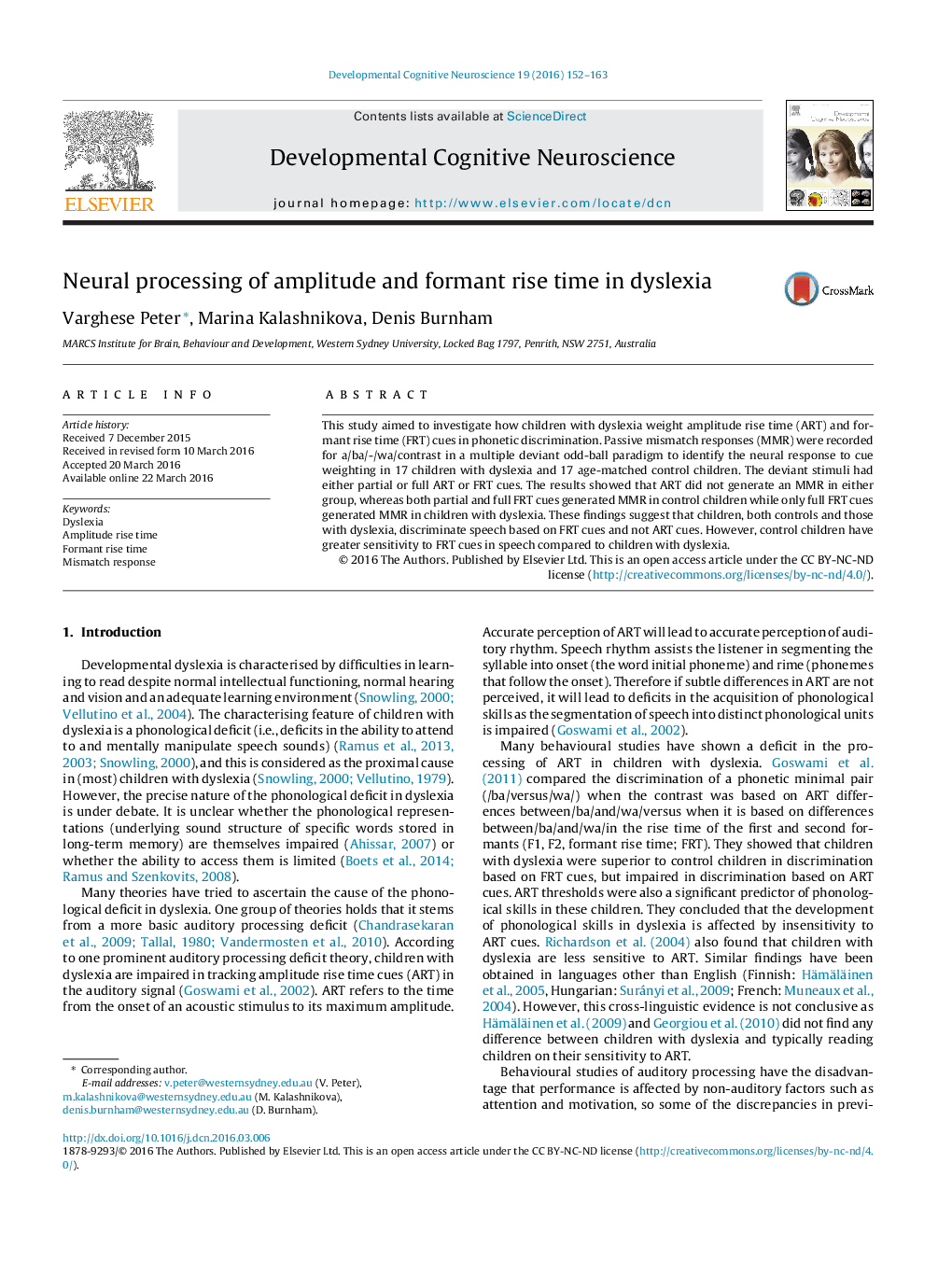| Article ID | Journal | Published Year | Pages | File Type |
|---|---|---|---|---|
| 4316445 | Developmental Cognitive Neuroscience | 2016 | 12 Pages |
This study aimed to investigate how children with dyslexia weight amplitude rise time (ART) and formant rise time (FRT) cues in phonetic discrimination. Passive mismatch responses (MMR) were recorded for a/ba/-/wa/contrast in a multiple deviant odd-ball paradigm to identify the neural response to cue weighting in 17 children with dyslexia and 17 age-matched control children. The deviant stimuli had either partial or full ART or FRT cues. The results showed that ART did not generate an MMR in either group, whereas both partial and full FRT cues generated MMR in control children while only full FRT cues generated MMR in children with dyslexia. These findings suggest that children, both controls and those with dyslexia, discriminate speech based on FRT cues and not ART cues. However, control children have greater sensitivity to FRT cues in speech compared to children with dyslexia.
